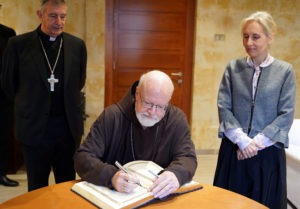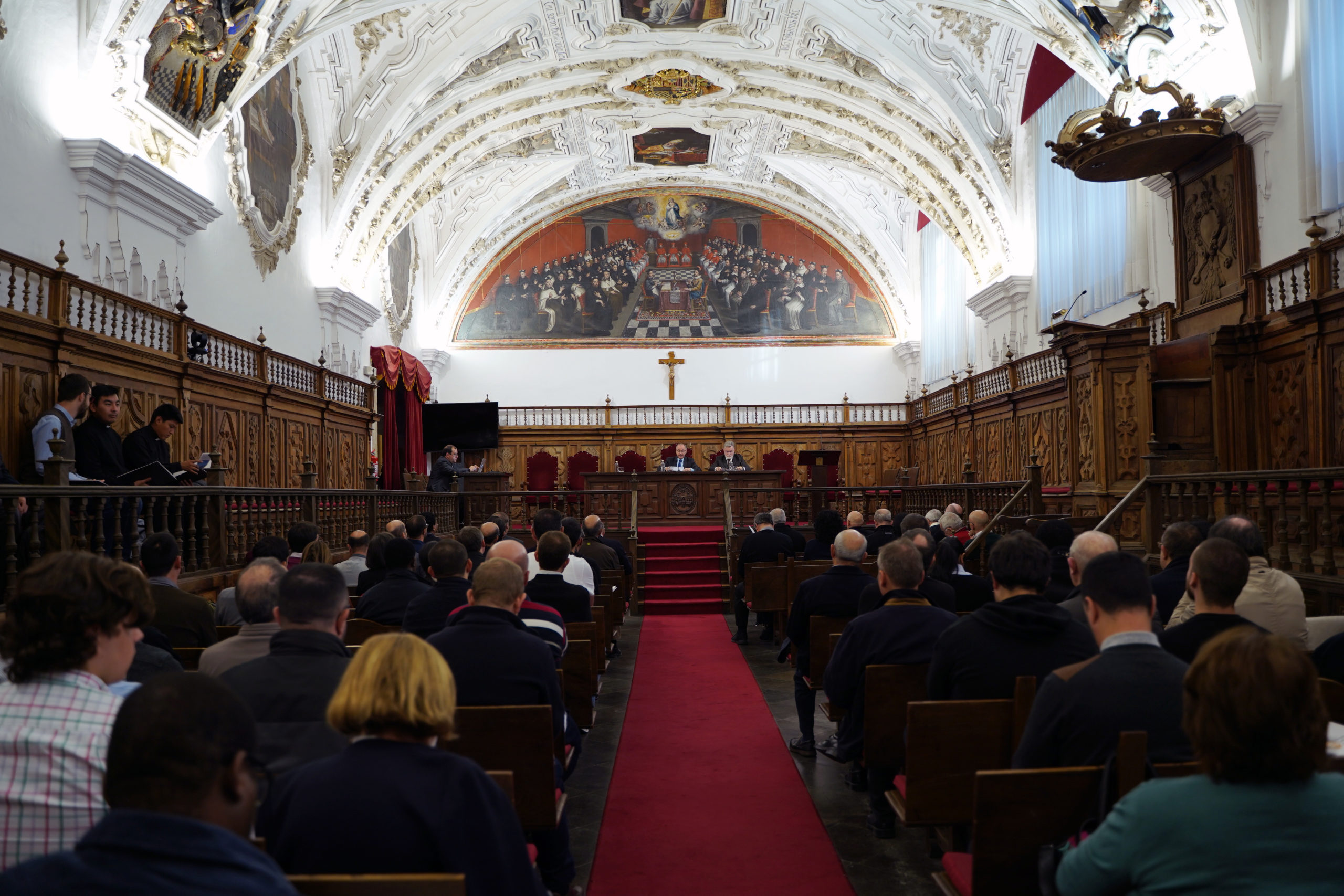This pastor, a member of the Order of Friars Minor Capuchin, in defense of life, has claimed the benefits of prayer, “despite scientific advances”
DIOCESAN COMMUNICATION SERVICE
The Archbishop of Boston, Cardinal Sean Patrick O’Malley (Ohio, USA, 1944), has participated this Wednesday, October 26, in the LIV Conference on Theology of the Pontifical University of Salamanca (UPSA), in which he gave a conference entitled ‘Pray in a suffering world’. Monsignor O’Malley has shared his vital experience and ecclesial service with the more than 150 participants in the conference.
Before the conference, the cardinal signed the University Book of Honor, in an act in which he was accompanied by the great chancellor of the UPSA, the bishop of Salamanca, Bishop Jose Luis Retanaand the rector, Mirian Cortes Dieguez.
In his speech, Cardinal Seán Patrick O’Malley, accompanied by the Dean of Theology, Francis Garciaand the coordinator of the conference, Miguel Anxo Penahas shared experiences of its commitment in defense of life.
The meaning of our life
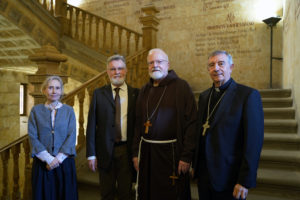
A member of the Order of Friars Minor Capuchin, Monsignor O’Malley has claimed the benefits of prayer, despite scientific advances. “In a world in which science seems to have made spirituality and transcendence disappear, prayer, however, gives us reason for our life and fills it with meaning. pain, suffering and death. From Saint Francis we can discover the meaning of these negativities by reading the book that is the very cross of Christ, where he offers the entire history of Humanity, the positive and the negative, to the Father in the Holy Spirit transforming it into life through the Resurrection”, The Cardinal has pointed out.
On the other hand, Monsignor O’Malley has recalled, quoting Cardinal Martini, that the first thing Jesus did was heal the sick, cast out demons, take care of the poor and bless children. In short, works of mercy. And the second thing was to evangelize, to make known the message of the Kingdom of God. “However, people will only believe us when they see that we care about them,” he warned.
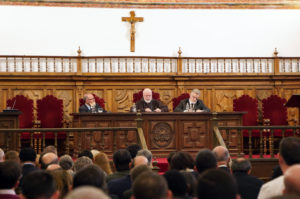 Remembering several teachers of the christian spirituality, the cardinal has invited assiduous meditation on the psalms and the gospels, contemplating Christ as man and teacher of prayer. In this sense, he has highlighted the prayer of the Our Father, “where he reveals to us the divine fatherhood, which includes motherhood.”
Remembering several teachers of the christian spirituality, the cardinal has invited assiduous meditation on the psalms and the gospels, contemplating Christ as man and teacher of prayer. In this sense, he has highlighted the prayer of the Our Father, “where he reveals to us the divine fatherhood, which includes motherhood.”
The Archbishop of Boston ended his speech stating that “true prayer always says yes to God’s willas the lives of Mary and the saints show us”.
Presentation of the Conference
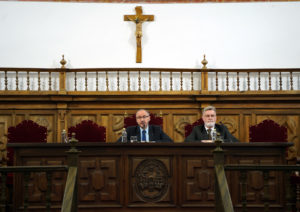
In the presentation of the Conference, the Dean of Theology, Francis Garcia Martinez, has pointed out that “prayer arises, in the first place, not from astonishment, because we are never born in paradise, but from necessity, from contradiction, from the feeling that we cannot cope with ourselves, that the world does not enough to be wholly him. And for that, prayer is The first word, the inarticulate cry of the human being who is looking for someone who can give harmonic form to that swarm of strength and energies”. Therefore, the dean continued, “prayer is the original event on and from which theology reflects”.
Professor Francisco García has concluded by warning that “prayer is not sustained simply by a spiritual impulsebut also needs practice and habits, and equally the intellectual stimulation of thought.
spiritual theology
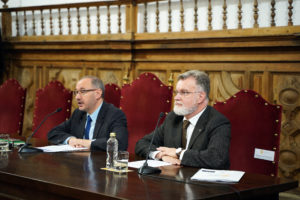 For his part, the teacher Miguel Anxo Pena, coordinator of the Conference, has underlined the need to deepen the study of the systematic questions of spiritual theology. In this sense, Pena has pointed out that the objective of the Conference is “to reflect on the role of the sacred in a world in which God has been left totally on the sidelines, in which God has become an annex no longer to the world we inhabit, but also to our concrete lives”.
For his part, the teacher Miguel Anxo Pena, coordinator of the Conference, has underlined the need to deepen the study of the systematic questions of spiritual theology. In this sense, Pena has pointed out that the objective of the Conference is “to reflect on the role of the sacred in a world in which God has been left totally on the sidelines, in which God has become an annex no longer to the world we inhabit, but also to our concrete lives”.
Thus, in the first of the presentations, the professor Martin Gelabert, of the Faculty of Theology of Valencia, has reflected on ‘Man as a praying being. Anthropological and theological dimensions of prayer’.
The first day of these LIV Conference, which is held on October 26 and 27will continue with two afternoon sessions by Professor Emilio López Navas, from the Higher Center for Theological Studies in Malaga, and María Teresa Gil Muñoz, from the Teresiano Sanjuanista International Center (CITeS), in Ávila.
Second day
Tomorrow, Thursday 27, the lecturer will open the day Juan Antonio Marcos, of the Universidad Pontificia Comillas, with a paper on ‘The prayerful experience of Jesus (pragmatic and mystical)’. Later, the dean of the UPSA Faculty of Theology, Francis Garcia Martinezwill speak on one of the concerns that are at the base of the Conference, ‘Prayer as a pastoral task’.
The conference will conclude with a conversation about prayer among the doctors Carolina Blazquez Married (Order of Saint Augustine) and Elena Hernandez Martin (Roman Community of Santo Domingo), an open dialogue that aims to offer living experiences of prayer today.
Cardinal O’Malley reflects on prayer at the UPSA Theology Conference – Diocese of Salamanca

